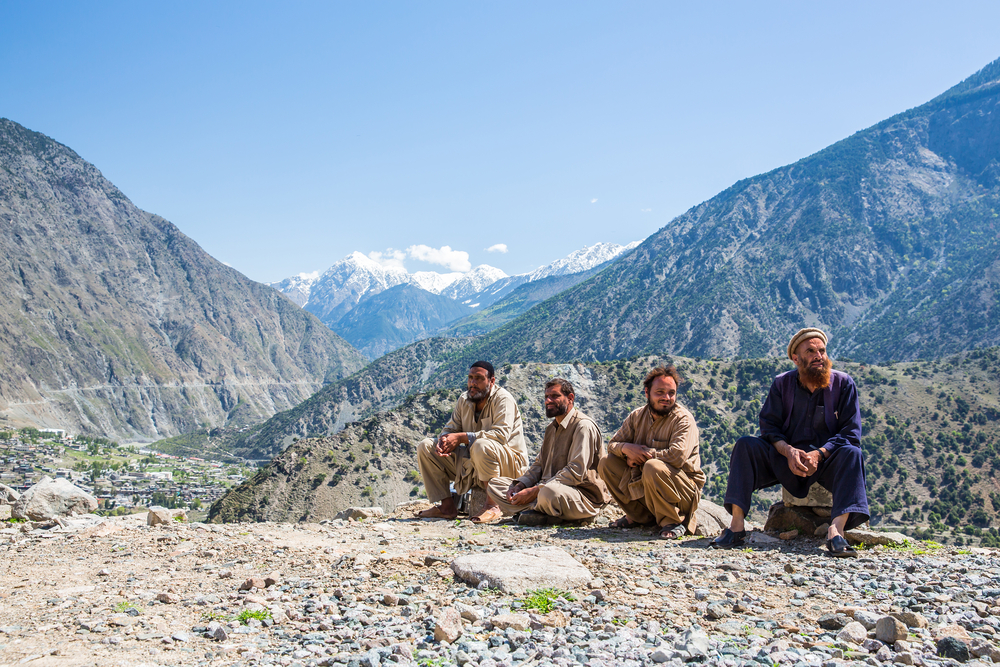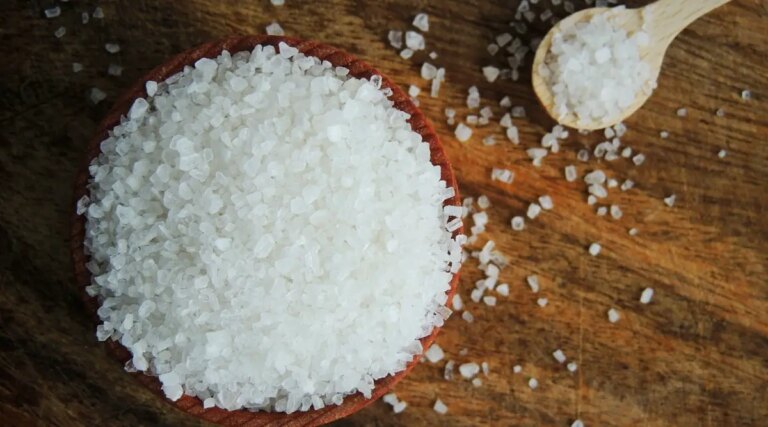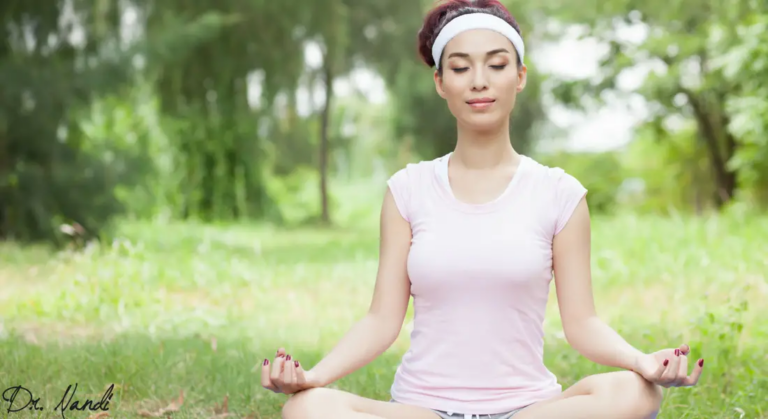The Hunza people, living in the breathtaking Hunza Valley of northern Pakistan, are renowned for their remarkable longevity and vitality. In this secluded region, it’s not uncommon to meet individuals who live well into their 100s, remaining healthy and active throughout their lives.
But what is the secret behind their impressive lifespan? While genetics might play a part, it’s the Hunza lifestyle, grounded in natural living and simple yet powerful habits, that holds the real key. Their diet and active way of life offer intriguing insights into how we, too, can embrace a longer, healthier life.
Hunza People’s Diet
The longevity of the Hunza people has sparked widespread curiosity, especially when it comes to their diet, which is the cornerstone of their remarkable health. The Hunza diet primarily consists of fresh, organic, and locally sourced foods, offering an array of essential nutrients that support both physical and mental well-being.
Whole Foods Rich in Nutrients
The Hunza people thrive on a diet rich in raw vegetables, fruits, grains, and legumes, with minimal reliance on processed or refined foods. Their meals are dominated by organic produce such as spinach, carrots, apricots, and beans. The emphasis on whole grains like millet, barley, and wheat, often served as chapati, provides them with sustained energy and essential nutrients. This contrasts with the modern Western diet, where processed and sugary foods contribute to inflammation and various chronic illnesses.
Apricots and Seeds
One of the most famous staples of the Hunza diet is the apricot, which plays a significant role in their culinary and medicinal practices. Apricots and their seeds are consumed in various forms, from fresh fruit to dried snacks and oil. These seeds are particularly notable for their content of vitamin B17, also known as amygdalin, which some studies suggest may have cancer-fighting properties. However, this claim remains controversial, as excessive consumption of apricot seeds could lead to cyanide toxicity. Regardless, apricots remain a key part of the Hunza diet, providing antioxidants that support immune health and protect against oxidative stress.
Minimal Meat and Dairy
Although the Hunza people are not strictly vegetarian, they consume meat in limited quantities. Meat is typically reserved for special occasions, and when consumed, it is lean and organically sourced from livestock such as goats and yaks.
Dairy products like yogurt and ghee are also part of their diet, offering beneficial probiotics and healthy fats that aid digestion and boost overall health. This balance between plant-based foods and occasional meat helps the Hunza people maintain a diet that is low in saturated fats and high in nutrients, contributing to their long life spans.

Hunza People’s Active Lifestyle
The Hunza people are not only known for their nutrient-rich diet but also for their highly active lifestyle, which plays a significant role in their impressive longevity. Unlike many modern societies where aging is often associated with physical decline, the elderly in Hunza remain vital and active well into their later years.
Movement as a Daily Practice
For the Hunza people, physical activity is woven into the fabric of daily life. Their mountainous terrain naturally demands regular movement, from walking long distances to tend to fields, to working with livestock.
This constant motion helps them maintain muscle strength, joint flexibility, and cardiovascular health. In contrast to more sedentary lifestyles, the Hunza are always on the move, which supports their longevity by keeping their bodies and minds sharp.
Physical Activity for Cognitive Health
Beyond the physical benefits, the Hunza people’s active way of life also contributes to maintaining mental acuity as they age. Research has shown that regular physical activity can delay cognitive decline by promoting brain health.
Physical movement enhances blood circulation, supports neuroplasticity, and encourages the growth of new brain cells, all of which are essential for preserving cognitive function. This lifestyle helps the Hunza remain mentally sharp, avoiding the age-related cognitive decline that is common in more sedentary populations.
Physical Labor
From farming to maintaining water canals, even the elderly in Hunza engage in physical labor, proving that activity is central to their way of life. This continuous engagement in labor-intensive tasks not only keeps their bodies fit but also supports their overall sense of purpose and mental well-being. Their example demonstrates how staying physically active can be a natural way to slow aging, both physically and mentally.

Social Bonds and Emotional Well-Being in the Hunza Tribe
Another pillar of the Hunza tribe’s longevity is their strong sense of community and emotional well-being. The Hunza people place great emphasis on social bonds, which play a crucial role in maintaining their physical and mental health throughout life. Living in close-knit communities, they foster deep relationships that support their overall well-being and contribute to their long, healthy lives.
Strong Community Ties
In the Hunza tribe, family and community are central to everyday life. This sense of belonging and purpose helps reduce stress, a key factor in both mental and physical health. The Hunza people frequently engage in social activities, gatherings, and celebrations, reinforcing bonds that help maintain emotional balance. These strong relationships provide emotional support, which has been shown to lower levels of stress-related hormones like cortisol, further promoting longevity.
Emotional Resilience and Happiness
The emotional well-being of the Hunza tribe is also linked to their outlook on life. The people of Hunza live with a sense of purpose and contentment, which contributes to their resilience in the face of challenges.
This positive attitude is vital in maintaining emotional health and is a significant factor in their longevity. Studies have shown that happiness and emotional satisfaction are directly linked to longer life expectancy, and the Hunza tribe exemplifies this connection with their consistently optimistic approach to life.
Mental and Spiritual Health
Beyond physical activity and social ties, the Hunza people also prioritize mental and spiritual well-being. Their peaceful environment, free from many of the stresses found in modern society, allows them to focus on mindfulness and mental clarity. The Hunza tribe’s lifestyle fosters a low-stress existence, which plays a significant role in their overall health and longevity. By living in harmony with nature and embracing a balanced, mindful lifestyle, they create a foundation for emotional and mental well-being that supports their long life spans.
The Hunza Tribe’s Approach to Natural Healing
The Hunza tribe is known for its remarkable ability to maintain health without relying on modern medicine. Instead, they have developed a system of natural healing that aligns with their lifestyle and environment. Their traditional remedies, derived from locally sourced herbs and plants, play a crucial role in their overall well-being.
Herbal remedies are central to the Hunza tribe’s approach to healthcare. The people use a wide range of herbs, many of which are grown in their own gardens, to treat common ailments. For instance, they use wild mint and thyme for digestive health, while other herbs like tumuru (a native herb) are brewed into teas to promote relaxation and general well-being. These practices reflect the Hunza people’s deep connection with their natural surroundings, and their ability to harness the power of nature to maintain good health.
Additionally, the Hunza tribe places a strong emphasis on preventive care. Their diet, lifestyle, and natural remedies are all designed to prevent illness rather than merely treat symptoms. This preventive mindset, combined with their holistic approach to health, ensures that they remain healthy and active well into old age.

My Personal RX on Longevity Inspired by the Hunza Lifestyle
I believe the Hunza tribe’s approach to health offers valuable lessons that we can incorporate into our modern lives. From their nutrient-dense diet to their active lifestyle, there’s much we can adopt to enhance our longevity and well-being. Here are some key takeaways that can support both physical and mental health:
- Incorporate more whole, organic foods: Focus on fresh vegetables, fruits, and whole grains, avoiding processed and refined products. This mirrors the Hunza diet and can significantly reduce inflammation while boosting overall health.
- Move more throughout the day: The Hunza people’s active lifestyle is key to their longevity. Daily walks or light physical activity can improve both cardiovascular and cognitive health, protecting the body and brain as you age.
- Support your digestion: To optimize nutrient absorption and support gut health, consider incorporating Digestive Enzymes. These can aid in healthy digestion and enhance the body’s ability to process and utilize nutrients efficiently.
- Stay hydrated with clean water: Drinking plenty of water is essential for maintaining physical and cognitive function. Aim for filtered or mineral-rich water to support overall health and hydration.
- Explore the gut-brain connection: Improving gut health has a direct impact on mental well-being. I recommend reading the Heal Your Gut, Save Your Brain to gain a deeper understanding of the gut-brain axis and how a holistic approach to gut health can also enhance mental clarity and emotional balance.
- Include healthy fats: Use nutrient-dense oils, such as apricot or olive oil, to support brain function and reduce inflammation, just as the Hunza people do.
- Prioritize community and relationships: Like the Hunza people, surround yourself with supportive relationships. Emotional well-being plays a critical role in overall health, helping to reduce stress and enhance longevity.
- Limit processed foods: Avoid foods high in sugars and unhealthy fats, which can accelerate aging and increase the risk of chronic diseases. Instead, focus on whole, nutrient-dense options that nourish both body and mind.
- Mindful fasting: Consider integrating occasional fasting into your routine, as the Hunza do. Fasting can rejuvenate the body, promote healing, and support metabolic health.
Sources:
- Shea, S. (2024, February 17). People in this remote valley live to 100—they follow 5 distinct diet and lifestyle habits for longevity. CNBC. https://www.cnbc.com/2024/02/17/people-in-remote-region-of-hunza-valley-live-to-100-years-old-heres-how.html
- Traditional foods of Hunza and Gilgit-Baltistan – Google Arts & Culture. (n.d.). Google Arts & Culture. https://artsandculture.google.com/story/traditional-foods-of-hunza-and-gilgit-baltistan-soch/kAVRIgnAI7drzw?hl=en
- The Hunza Diet: A Low-Fat Plan for Long Longevity. (n.d.). https://heartify.io/blog/tpost/5otxdd7p51-the-hunza-diet-a-low-fat-plan-for-long-l











 Subscribe to Ask Dr. Nandi YouTube Channel
Subscribe to Ask Dr. Nandi YouTube Channel










